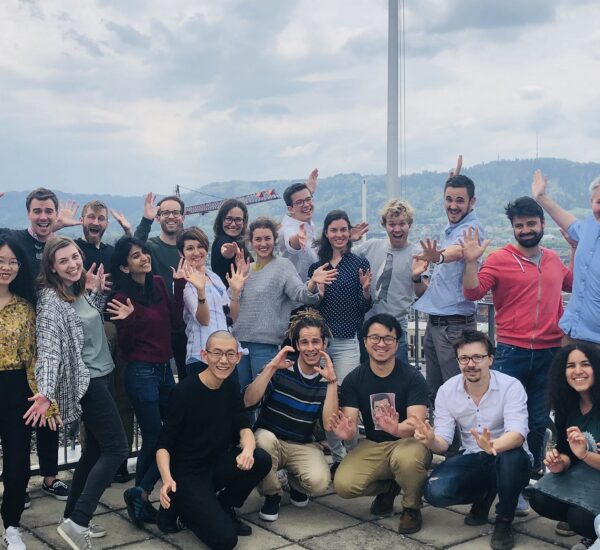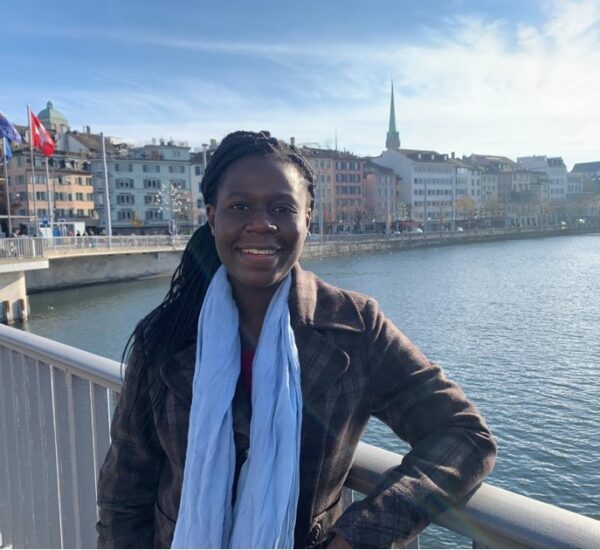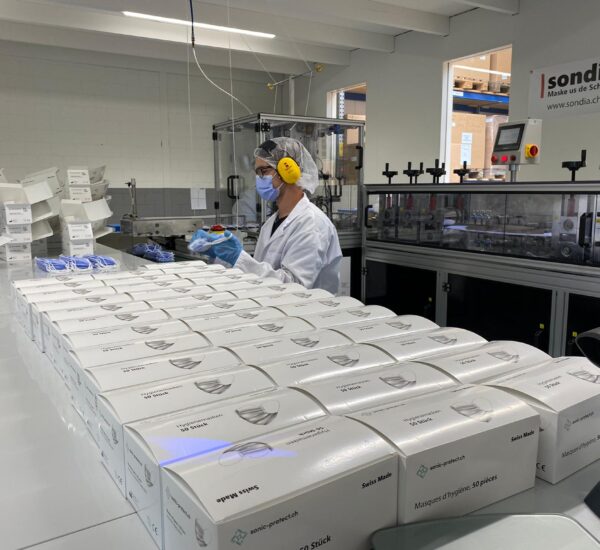Europe’s Strategic Tech Moment
June 5, 2025This article highlights ETH Zurich’s presence in Heilbronn during TECH 2025: The Convergence of Innovation—the inaugural Technology Experience Convention that brought together Europe’s leading minds in AI, biotech, and innovation on May 25-27. The conference is organised by the Handelsbatt Group in collaboration with leading industry, media and academic partners. The ETH delegation to the city, which will host the new ETH Campus Heilbronn, included staff, students, and faculty. Located in the heart of Europe’s AI ecosystem, the visit offered an opportunity to explore future plans for the campus, connect with local alumni, and engage in discussions on the challenges of innovation and AI adoption.
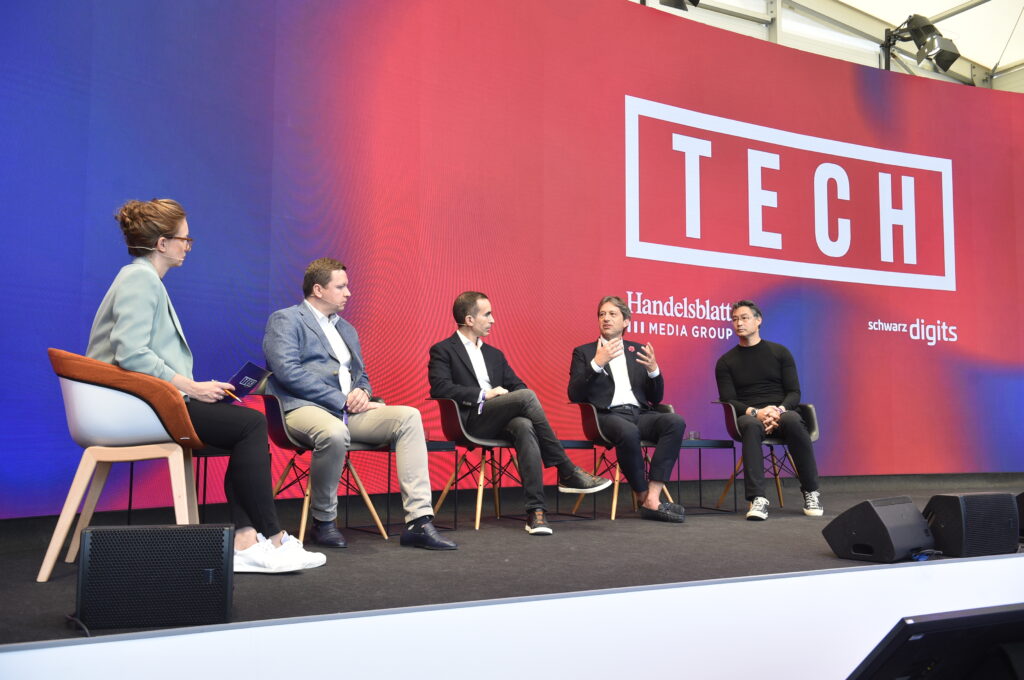
Is Pharma Europe’s Next Engine of Growth?
That was the bold question tackled at one of the standout panels of Monday morning. Among the speakers was ETH Zurich Professor Gisbert Schneider, a pioneer in AI-driven drug discovery. His insights underscored how AI is not just a buzzword—it’s already transforming pharma by improving molecule selection and accelerating the path to new treatments.
The consensus? Europe has the talent, the infrastructure, and a regulatory environment that can still support innovation—but speed and cultural readiness for AI adoption are holding us back.
AI isn’t here to replace scientists—it’s helping us select better molecules, improve clinical trial success, and even enable breakthroughs like regenerative medicine that weren’t possible before. But if we want to compete with the US and China, we need to act, not just plan: invest in computing power, streamline regulation, and embrace a more risk-tolerant mindset.
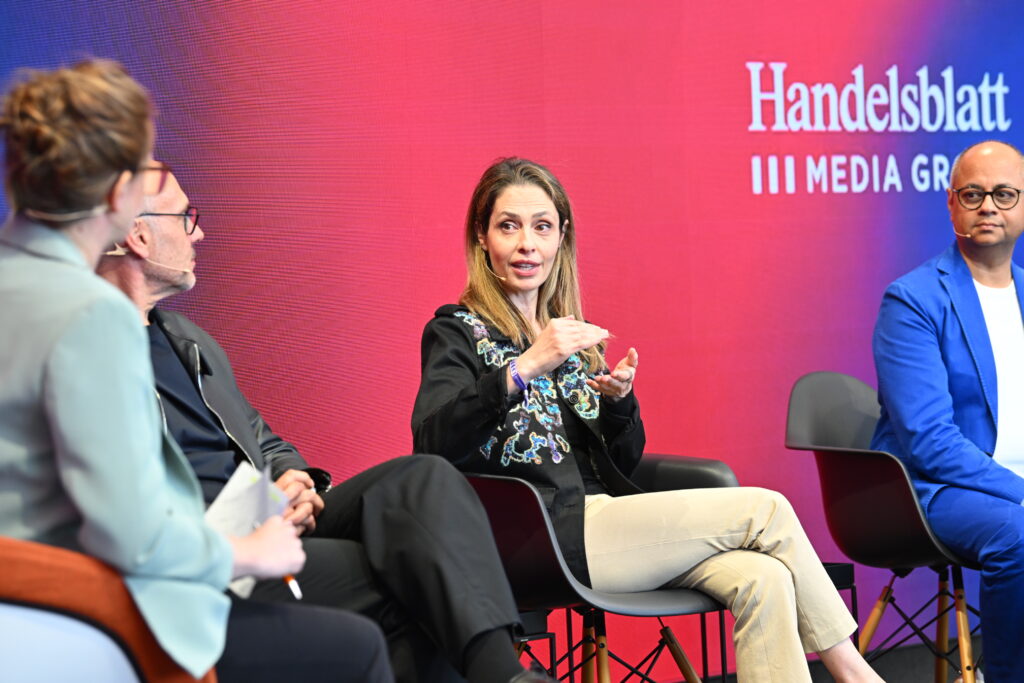
Healing with Data: Inside the Medical Data Revolution
At TECH 2025, a compelling discussion explored how we can harness data to transform healthcare—from reactive treatment to proactive prevention. ETH Zurich’s Professor Effy Vayena joined a panel of experts to unpack the challenges and opportunities of the medical data revolution.
Despite the vast amount of health data available, much remains untapped due to siloed systems, lack of interoperability, and institutional reluctance to share. As the panel highlighted, this isn’t just a regulatory issue—it’s about culture, incentives, and trust.
“Structured data is the new oil,” but success will belong to those who build the most effective data models. And as AI begins to outperform doctors in specific tasks, we face an ethical question: Can we afford not to use it?
Patients are ready to do this; they want to share their data, as long as this can be done securely. The resistance lies elsewhere. If we treat healthcare as a strategic industry, not just a cost, Europe can lead in building a system that’s smarter, faster, and fairer.
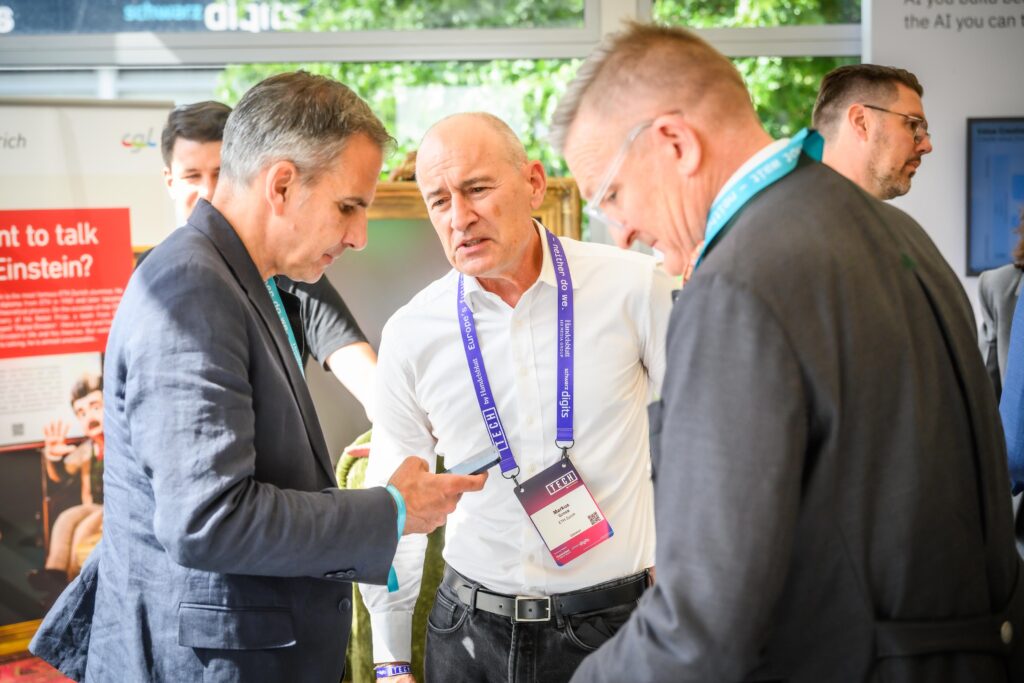
Digital Humans and AI Characters
What happens when cutting-edge academic research meets the magic of storytelling? Professor Markus Gross shared how ETH Zurich and the Walt Disney Studios are pioneering the development of digital humans—AI-powered characters that are not just visually stunning, but emotionally convincing.
As part of the world’s largest film studio, Gross emphasized the storytelling challenge: to make digital protagonists believable over time, avoiding the dreaded Uncanny Valley. Advances in facial performance capture, down to the pore level, now make it possible to create lifelike avatars—young Luke Skywalker, a revived Walt Disney, or entirely fictional humans that never existed.
These same techniques extend beyond cinema, into robotics, theme parks, and interactive education. Case in point: Digital Einstein—a conversational AI system that integrates attention detection, speech recognition, large language models, and expressive animation to bring the iconic scientist to life.
Participants had the chance to engage in conversation and interact with Digital Einstein on-site. The digital twin appears to be as communicative and humorous as the original Einstein. Digital humans like Einstein are powered by complex algorithms, combining natural-language processing with dynamic rendering of facial expressions and body language. The 3D model was deliberately designed to depict a younger Einstein, reminiscent of his years in Zurich.
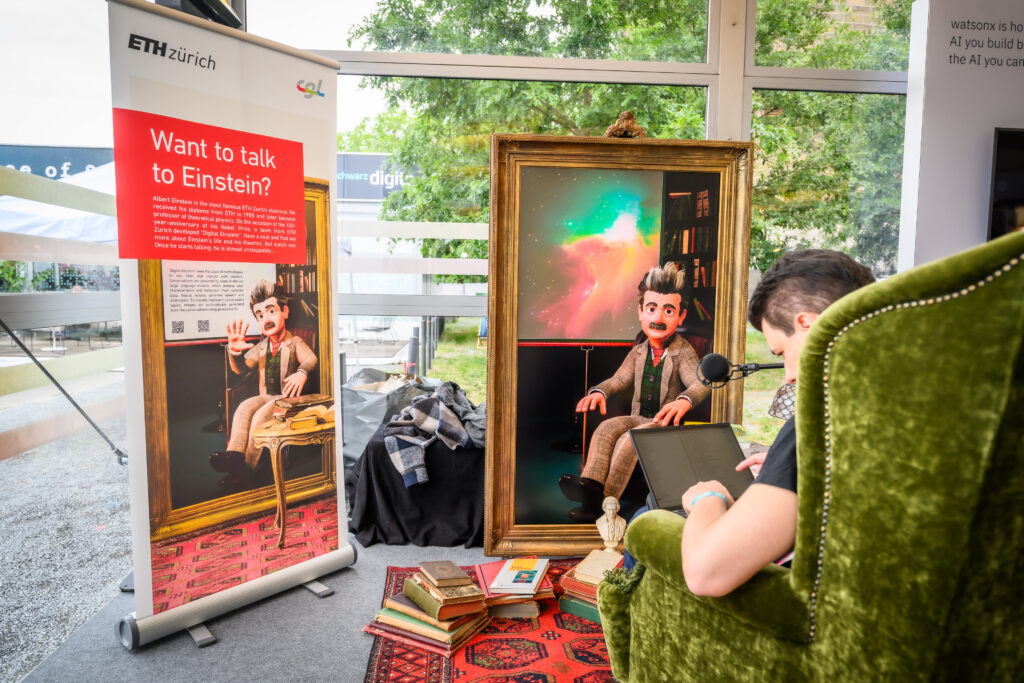
As TECH 2025 demonstrated, ETH Zurich is not just observing the future of technology — it is actively shaping it. From pioneering AI-driven breakthroughs in pharma and healthcare to redefining the boundaries of digital storytelling, ETH’s multifaceted expertise highlights Europe’s potential to lead the next wave of innovation. With the new ETH Campus Heilbronn poised to become a hub for collaboration and discovery, the stage is set for bold ideas to transform into real-world impact.


